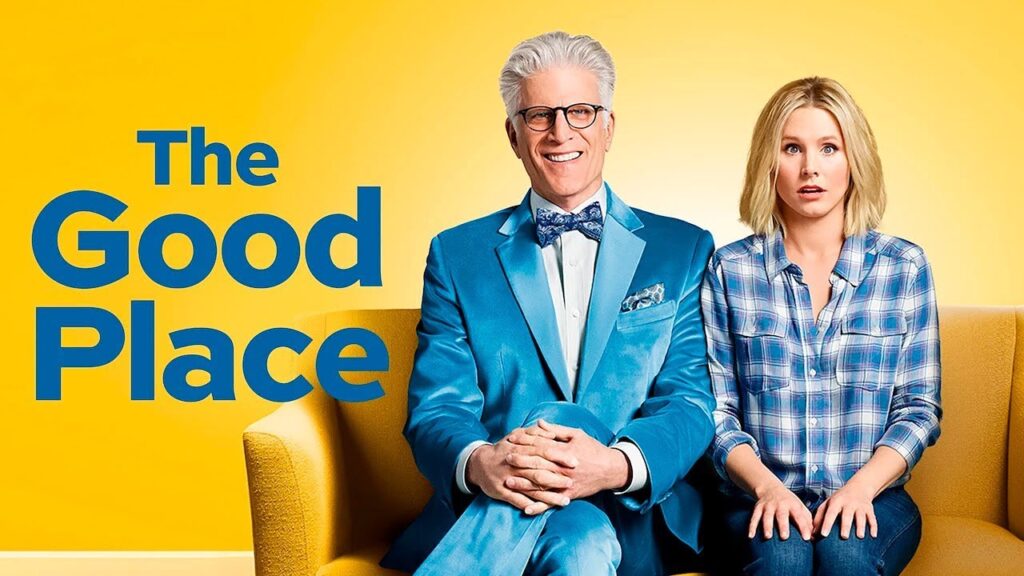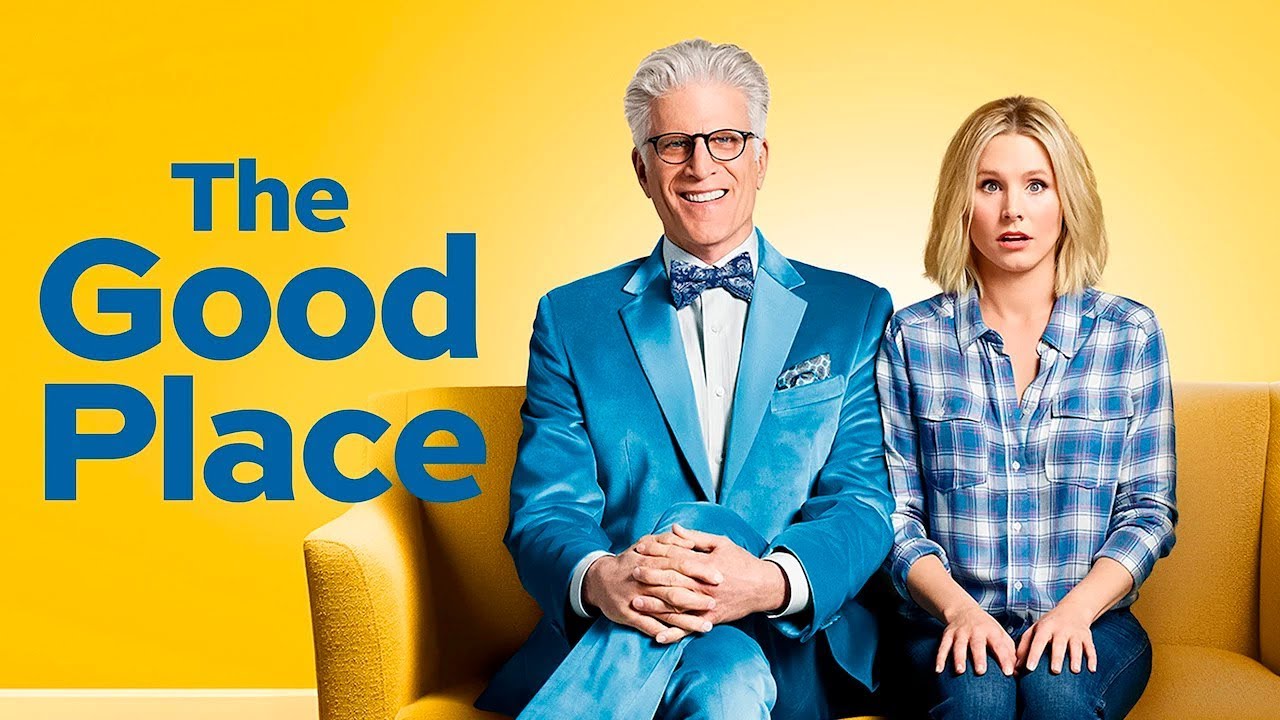
The Enduring Appeal of ‘The Good Place’: Why the Series Still Resonates
In a television landscape saturated with cynical anti-heroes and bleak dystopian narratives, ‘The Good Place’ emerged as a refreshing anomaly. The NBC sitcom, created by Michael Schur (known for ‘Parks and Recreation’ and ‘Brooklyn Nine-Nine’), offered a surprisingly optimistic and philosophical exploration of morality, ethics, and what it truly means to be a good person. While the series concluded its four-season run in 2020, its impact and relevance continue to resonate with audiences, making it a subject worthy of continued discussion and analysis.
At its core, ‘The Good Place’ centers on Eleanor Shellstrop (Kristen Bell), a recently deceased woman who finds herself in what she believes to be the afterlife’s titular ‘Good Place,’ a utopian paradise designed for those who have lived virtuous lives. However, Eleanor quickly realizes that she’s been mistakenly admitted, as her past life was far from exemplary. Alongside her assigned soulmate, Chidi Anagonye (William Jackson Harper), a moral philosophy professor, Eleanor embarks on a journey of self-improvement, grappling with complex ethical dilemmas and striving to become a better person. The series also features Tahani Al-Jamil (Jameela Jamil), a wealthy philanthropist with a penchant for name-dropping, and Jason Mendoza (Manny Jacinto), a lovable but dim-witted DJ from Florida. The architect of their neighborhood, Michael (Ted Danson), is a demon experimenting with a new form of torture, adding another layer of complexity to the narrative.
The Show’s Philosophical Depth
One of the key reasons for ‘The Good Place’s’ enduring appeal lies in its intelligent and accessible exploration of philosophical concepts. The show doesn’t shy away from tackling complex ideas from thinkers like Aristotle, Kant, and Mill, but it does so in a way that is both engaging and easy to understand. Chidi’s role as a moral philosophy professor allows the series to delve into various ethical frameworks, presenting them in the context of Eleanor’s journey and the challenges faced by the other characters. This makes philosophy relatable and relevant to everyday life, encouraging viewers to consider their own moral compass.
The series also grapples with questions of free will, determinism, and the nature of good and evil. It challenges the traditional notion of a reward-and-punishment afterlife, suggesting that true moral growth comes from striving to be better, regardless of external incentives. The show’s exploration of these themes is not only thought-provoking but also ultimately hopeful, suggesting that even flawed individuals are capable of change and redemption.
Character Development and Relatability
Beyond its philosophical depth, ‘The Good Place’ excels in its character development. Each of the main characters undergoes significant growth throughout the series, evolving from flawed and self-centered individuals into more compassionate and empathetic beings. Eleanor’s journey, in particular, is compelling, as she confronts her past mistakes and strives to become a person worthy of the Good Place. Her struggles with self-doubt and her vulnerability make her a relatable character, even for viewers who may not share her specific experiences.
The relationships between the characters are also a crucial element of the show’s success. The unlikely friendships that form between Eleanor, Chidi, Tahani, and Jason are both heartwarming and humorous. The series explores the complexities of human connection, highlighting the importance of forgiveness, understanding, and support. Michael, the demon architect, also undergoes a significant transformation, developing genuine affection for the humans he was initially tasked with torturing. His journey from malevolent trickster to empathetic ally adds another layer of depth to the narrative.
Humor and Heart
While ‘The Good Place’ tackles serious philosophical themes, it never loses sight of its comedic roots. The show is filled with witty dialogue, absurd situations, and memorable running gags. The humor is often used to lighten the mood and make the philosophical concepts more accessible. The writers skillfully balance the comedic and dramatic elements, creating a series that is both entertaining and thought-provoking.
The show’s humor is also often used to explore social commentary. ‘The Good Place’ satirizes consumerism, celebrity culture, and other aspects of modern society. It also subtly critiques the traditional power structures that often perpetuate inequality and injustice. However, the show’s social commentary is never preachy or heavy-handed. Instead, it is woven into the narrative in a way that is both insightful and humorous.
The Show’s Impact on Popular Culture
‘The Good Place’ has had a significant impact on popular culture since its premiere. The show has been praised for its originality, its intelligence, and its optimistic message. It has also been credited with sparking renewed interest in philosophy and ethics among a wider audience. The series has won numerous awards, including a Peabody Award and several Primetime Emmy Award nominations. [See also: The Good Place’s Influence on Modern Sitcoms]
The show’s popularity has also led to the creation of various spin-offs and adaptations. There have been books, podcasts, and even a stage adaptation based on ‘The Good Place.’ The series has also inspired countless articles and essays exploring its philosophical themes and its social commentary. The enduring appeal of ‘The Good Place’ is a testament to its quality and its relevance.
Why ‘The Good Place’ Still Matters
In a world that often feels cynical and divided, ‘The Good Place’ offers a message of hope and optimism. The show reminds us that even flawed individuals are capable of change and that striving to be better is always worthwhile. It also emphasizes the importance of human connection and the power of empathy. In a time when these values are often overlooked, ‘The Good Place’ serves as a valuable reminder of what truly matters.
The series also provides a framework for thinking about ethical dilemmas in a more nuanced and thoughtful way. It challenges viewers to consider their own moral compass and to reflect on the choices they make in their daily lives. ‘The Good Place’ doesn’t offer easy answers, but it does provide a starting point for engaging in meaningful conversations about morality and ethics. The show’s exploration of the afterlife is less about literal depictions and more about the metaphorical journey of self-improvement. The concept of the Good Place itself is less a destination and more a state of being.
Moreover, ‘The Good Place’ offers a refreshing alternative to the often-dark and pessimistic narratives that dominate contemporary television. While the show acknowledges the existence of suffering and injustice, it ultimately emphasizes the power of hope, resilience, and human connection. This optimistic message is particularly relevant in today’s world, where many people feel overwhelmed by the challenges they face. The show encourages viewers to believe in the possibility of a better future, both for themselves and for the world around them.
The enduring appeal of ‘The Good Place’ also stems from its ability to engage viewers on multiple levels. The show is both intellectually stimulating and emotionally resonant. It offers thought-provoking philosophical insights while also providing heartwarming and humorous entertainment. This combination of intellectual depth and emotional accessibility makes ‘The Good Place’ a unique and enduring television experience. The series reminds us that even in the face of adversity, we can always choose to be better, to connect with others, and to strive for a more just and compassionate world. The lessons learned from ‘The Good Place’ are not just relevant to the characters in the show; they are relevant to all of us.
The Legacy of ‘The Good Place’
As the television landscape continues to evolve, ‘The Good Place’ stands as a testament to the power of smart, optimistic storytelling. Its exploration of complex philosophical themes, its well-developed characters, and its blend of humor and heart have resonated with audiences around the world. The series has not only entertained but has also inspired viewers to think more deeply about morality, ethics, and what it means to live a good life. The legacy of ‘The Good Place’ will undoubtedly continue to influence television and popular culture for years to come, solidifying its place as a modern classic. The show has proven that television can be both entertaining and intellectually stimulating, and that optimism can be a powerful force for change.
The impact of ‘The Good Place’ extends beyond mere entertainment; it has sparked conversations, inspired action, and provided a framework for navigating the complexities of modern life. Its message of hope, resilience, and human connection is more relevant than ever, making it a series that continues to resonate with audiences long after its final episode aired. The themes explored in ‘The Good Place’ remain timeless and universal, ensuring its place in television history. The show’s ability to blend philosophy, comedy, and heartfelt drama is a rare and valuable achievement, making it a series that will continue to be discovered and appreciated by new generations of viewers.

